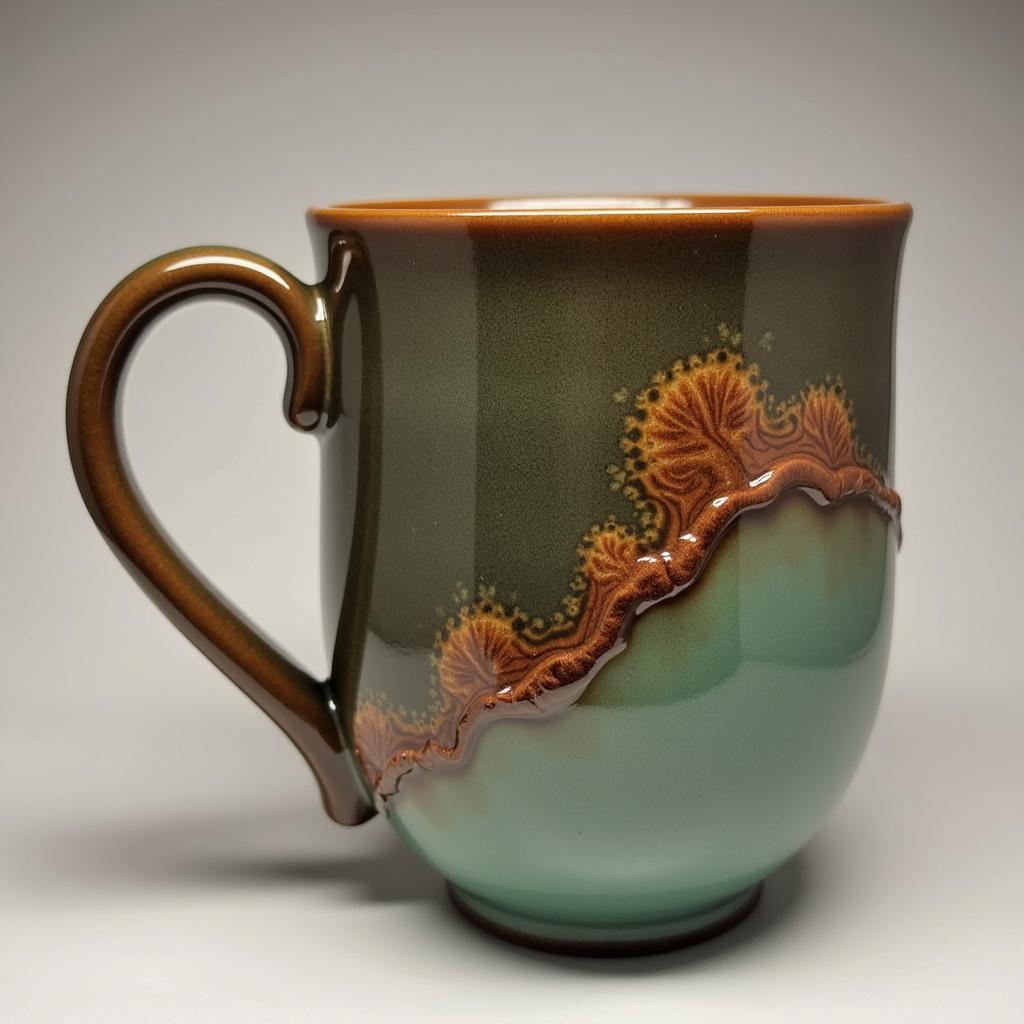Is Epoxy Food Safe Once Cured? This is a common question for anyone considering using epoxy for projects that might come into contact with food. Understanding the nuances of food-safe epoxy is crucial for ensuring the health and safety of yourself and your loved ones. Let’s delve into this important topic and explore everything you need to know.
Understanding Food-Safe Epoxy
Not all epoxies are created equal. Some contain harmful chemicals that can leach into food, even after the epoxy has cured. “Food-safe” epoxy, on the other hand, is formulated to be inert and non-toxic once fully cured. This means that it won’t release any harmful substances into your food. However, finding genuinely food-safe epoxy requires careful consideration. food safe resin epoxy
What Does “Fully Cured” Mean?
A crucial aspect of food safety with epoxy is ensuring it’s fully cured. Curing is a chemical process that transforms the liquid epoxy into a solid, inert material. Incomplete curing can leave unreacted chemicals that could contaminate food. Typically, epoxy takes several days, sometimes even weeks, to fully cure. Check the manufacturer’s instructions for the specific curing time of your chosen product.
Choosing the Right Food-Safe Epoxy
When selecting a food-safe epoxy, look for certifications like FDA compliance. This indicates that the cured epoxy is safe for incidental food contact. Don’t be misled by labels claiming “non-toxic.” This doesn’t necessarily guarantee food safety. Look for explicit statements about food contact. You can find suitable options for various applications, such as food safe sealant for countertops.
Is Wood Stain Food Safe with Epoxy?
Combining epoxy with other materials, like wood stain, can complicate the food safety question. Some wood stains are not food-safe, and even if the epoxy is, the stain underneath could leach through. Always ensure both the stain and the epoxy are certified for food contact if you’re using them together. For more information about food-safe wood stains, see our article on is wood stain food safe.
Ensuring Food Safety When Using Epoxy
Even with food-safe epoxy, precautions are essential. Avoid using epoxy on surfaces that will experience prolonged contact with acidic foods or high heat. These conditions can degrade the epoxy over time, potentially compromising its food safety. For specific applications like mugs, ensure you use a dedicated food safe epoxy for mugs.
 A mug coated with food-safe epoxy
A mug coated with food-safe epoxy
“Always prioritize reputable brands and follow the manufacturer’s instructions meticulously,” advises Dr. Emily Carter, a materials scientist specializing in polymer chemistry. “This is the best way to ensure the long-term safety and integrity of your epoxy projects.”
How Can I Tell If My Epoxy is Fully Cured?
A fully cured epoxy will be hard, non-tacky, and odorless. If you notice any lingering chemical smell, it likely hasn’t cured completely.
“Proper surface preparation is key for a strong and durable epoxy finish that will maintain its food-safe properties,” adds John Miller, a seasoned craftsman with years of experience in epoxy applications. “A clean and properly prepared surface ensures optimal adhesion and minimizes the risk of degradation.”
Conclusion: Is Epoxy Food Safe Once Cured?
Yes, epoxy can be food safe once fully cured, provided you choose a certified food-safe product and follow the manufacturer’s instructions. Remember to prioritize quality, follow best practices, and take necessary precautions to ensure the safety of your food. For those in New Zealand, we have compiled a list of resources for food grade epoxy resin nz.
FAQ
- What is food-safe epoxy? Epoxy resin specifically formulated to be inert and safe for incidental food contact after curing.
- How can I tell if my epoxy is food-safe? Look for FDA compliance or similar certifications.
- How long does epoxy take to cure? Curing time varies depending on the product, usually several days to weeks.
- Can I use any epoxy for food contact? No, only use certified food-safe epoxy.
- What precautions should I take when using food-safe epoxy? Avoid prolonged contact with acidic foods and high heat.
- What should I look for when buying food safe epoxy? Certifications like FDA compliance, clear labeling about food contact, and reputable brands.
- Can I use epoxy on cutting boards? Yes, provided it’s a food-safe epoxy and applied correctly.
When you need support, please contact us by Phone: 02437655121, Email: minacones@gmail.com Or visit us at: 3PGH+8R9, ĐT70A, thôn Trung, Bắc Từ Liêm, Hà Nội, Việt Nam. We have a 24/7 customer support team.